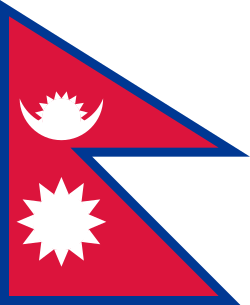| Nepal at the 1972 Summer Olympics | |
|---|---|
 | |
| IOC code | NEP |
| NOC | Nepal Olympic Committee |
| in Munich | |
| Flag bearer | Jit Bahadur Khatri Chhetri |
| Medals |
|
| Summer Olympics appearances (overview) | |
Nepal competed at the 1972 Summer Olympics in Munich, West Germany.
| Nepal at the 1972 Summer Olympics | |
|---|---|
 | |
| IOC code | NEP |
| NOC | Nepal Olympic Committee |
| in Munich | |
| Flag bearer | Jit Bahadur Khatri Chhetri |
| Medals |
|
| Summer Olympics appearances (overview) | |
Nepal competed at the 1972 Summer Olympics in Munich, West Germany.
Men's Marathon: